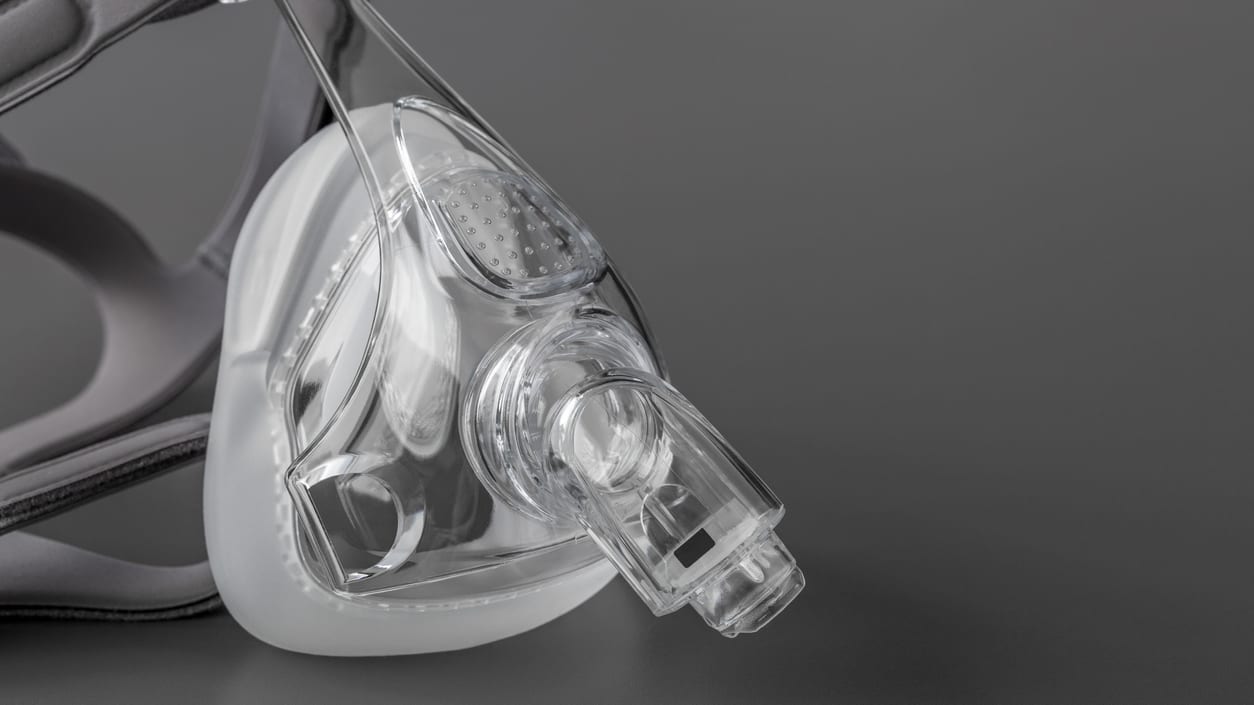A truck driver for Walmart Inc. diagnosed by its safety program as having sleep apnea could not contest his resignation after refusing to wear a continuous positive airway pressure (CPAP) machine at night, the 6th U.S. Circuit Court of Appeals ruled.
The plaintiff began working as a commercial truck driver for Walmart in 2006. Federal law requires drivers to undergo an annual Department of Transportation (DOT) medical examination to be certified as physically qualified. During the plaintiff's medical examination in 2013, a physician assistant determined that the plaintiff was at risk for sleep apnea and referred him for a sleep study. A company called SleepSafe Drivers managed Walmart's sleep-apnea program for its truck drivers.
The plaintiff claimed that the referral was based solely on his body mass index and neck circumference. However, the plaintiff had noted several risk factors for sleep apnea in his intake form during the visit, including diabetes and high blood pressure, sleep disorders, pauses in breathing while asleep, daytime sleepiness, and loud snoring.
The plaintiff underwent a sleep study conducted by Advanced Home Medical, a SleepSafe contractor, and was diagnosed with sleep apnea. The plaintiff was instructed to wear a CPAP machine for four hours each night when sleeping in his truck, but the plaintiff found that wearing the device caused him dry mouth, as well as headaches and nosebleeds. He complained about the pain and discomfort caused by the device to his supervisor, as well as to a Walmart manager and a SleepSafe employee.
After several weeks of attempting to use the CPAP machine, the plaintiff's compliance in wearing the machine wavered. SleepSafe remotely monitored the plaintiff's use of the device and informed him that he was not in compliance with Walmart's sleep-apnea program. As a result, it issued a warning that he could not drive unless he wore the CPAP machine. The plaintiff was suspended twice for not complying with Walmart's requirement. Each time, the plaintiff was required to wear the CPAP machine for five consecutive nights in order to return to his duties.
In February 2014, the plaintiff participated in a second sleep study at Adena Hospital. This sleep study, in contrast to the study by Advanced Home Medical, showed that he did not have sleep apnea. After receiving this negative result, the plaintiff stopped wearing the CPAP machine. He also informed his supervisor that he no longer needed to use the device.
A Walmart manager instructed the plaintiff to undergo another DOT medical examination to be recertified to drive. When the plaintiff showed the physician assistant the results of the Adena Hospital sleep study, the physician assistant issued him a new DOT certification card without conducting an independent examination.
Despite this recertification, Walmart's operations safety manager instructed the plaintiff to participate in a third sleep study, once again by SleepSafe, claiming that the doctor who had performed the sleep study at Adena Hospital was not board-certified. The plaintiff subsequently underwent a third sleep study at Mid Ohio Sleep Center on March 7, 2014, resulting in a second diagnosis of sleep apnea. A SleepSafe representative instructed the plaintiff to wear the CPAP machine for eight hours a night, seven days a week, and the plaintiff's supervisors informed him that he would need to wear the machine for three consecutive nights in order to return to work.
However, the plaintiff still refused to wear the CPAP machine. He was then asked to take the conflicting sleep studies to a second DOT medical examiner who would evaluate the reports, and was given seven days to do so. Rather than comply with the request, the plaintiff resigned.
He then brought a lawsuit claiming disability discrimination, retaliation and wrongful termination under Ohio law. Walmart moved for summary judgment to dismiss the plaintiff's claims, which was granted.
On appeal, the 6th Circuit considered whether the plaintiff had satisfied his burden of showing discrimination and retaliation. While the plaintiff claimed that he did not have sleep apnea, the court found that Walmart honestly believed he did and had a legitimate, nondiscriminatory reason to require him to use a CPAP device. As a result, the 6th Circuit upheld the dismissal of the plaintiff's claims.
Allman v. Walmart Inc., 6th Cir., No. 19-4220 (July 30, 2020).
Professional Pointer: For some types of jobs, regulations govern how employers must address certain employee medical conditions, often for safety reasons. In these instances, proof of regulatory compliance by the employer can often defeat an employee's disability-discrimination claim.
Jeffrey Rhodes is an attorney with McInroy, Rigby & Rhodes LLP in Arlington, Va.
An organization run by AI is not a futuristic concept. Such technology is already a part of many workplaces and will continue to shape the labor market and HR. Here's how employers and employees can successfully manage generative AI and other AI-powered systems.




